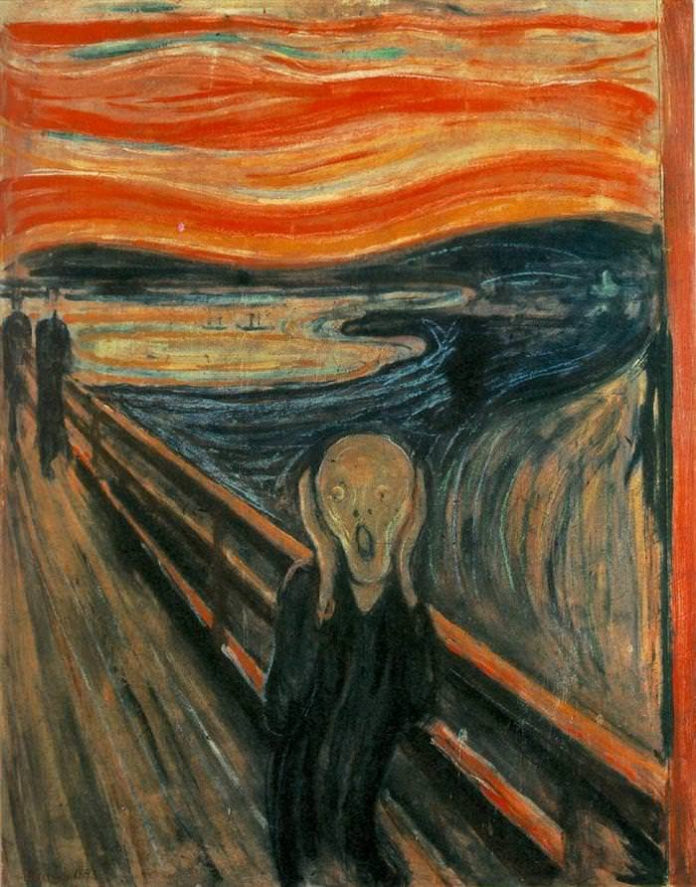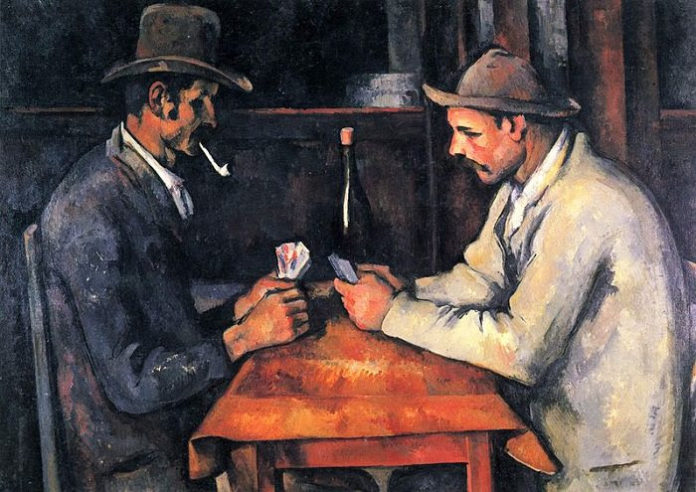While paintings of yore were classics, “modern paintings” reduce Art to a mockery, says V S Ravi.
One can appreciate great poetry, because it deals with the universal themes that govern human existence and which will remain so till the end of time. Great as the achievements of Science have been, Shakespeare, Milton, Homer, Dante, and Kalidasa will never lose their hold on what is perennial in man- emotions like, love, gratitude, affection, ambition, generosity, revenge and hatred. Poets like those named above are immortal, because of their everlasting soul-stirring lines, which elevate human life above the level of a farce
One can also appreciate the appeal of great music, the symphonies of Beethoven, or the songs of Thyagaraja, for similar reasons. Even Shakespeare makes Lorenzo say in” The Merchant of Venice”
“The man that hath no music in himself,
Nor is moved with concord of sweet sounds,
Is fit for treasons stratagems and spoils.
The motions of his spirit are dull as night,
And his affections dark as Erebus.
Let no such man be trusted”
Thus paying the ultimate tribute, to the importance of melody as a soothing balm to the troubled human mind
Paintings, though supposed to deal with the same themes, cannot capture human emotions the way Poetry or Music does. However, the appeal of paintings lies only in the subjective assessment of the viewer. This is true even of the greatest paintings, like “The Night watch” of Rembrandt, DaVinci’s “Mona Lisa” and “Last Supper” and Botticelli’s” Birth of Venus”(not shown here) .
However, when you come to modern art, the paintings lack whatever little appeal the masterpieces of the great Italian, French, Dutch, and Spanish painters have. On the other hand the so called “modern paintings” reduce Art to a mockery.
Not surprisingly only eccentric millionaires generally buy them as status symbols and also to create an impression that they are connoisseurs of complex and exquisite paintings which convey some profound meaning that , only they can understand . How else can you explain the colossal sums of money paid to acquire these paintings which are in most cases, just horizontal splashes of three different colours on a canvas (e.g Mark Rothko) or elongated and ugly human faces (Mogdialini), the harsh geometrical forms of cubism (Picasso) and the extensive symbolism of surrealist art (e.g Salvador Dali), to name a few.
While all the extraordinarily expensive paintings shown below, mostly fall in the above category, Mark Rothko’s “Violet, Green Red” which was sold for $186 Million, Mark Rothko’s “Yellow, pink, and Lavender” ($ 72.8 Million), Jackson Pollock’s “ No 5, 1948” ($ 140 Million), Edward Munich’s “The scream” ($119.9 Million), Andy Warhol’s “Green car crash” ($ 71.7 Million) and Kazimir Malevich’s “Suprematist composition” (sold for $60 Million), are in a class of their own. The mind boggles at the prices for which these so-called “modern paintings” were sold. No art critic can explain why Mark Rothko’s two hideous paintings which are similar, being essentially ugly splashes of three different colours were sold for two different prices, the first one for $ 186 Million, and another $ 72.8 Million. These two grotesque paintings take not only the cake but the entire bakery.
It is for this reason that I differ from the views of even John Keats whom however I admire. I am unable to comprehend how and why he wrote:
“Heard melodies are sweet but those unheard sweeter”.
Those” unheard” melodies must appeal only to eccentric millionaires who want to throw their money around. Because they are sought out by eccentric millionaires, the world’s most expensive paintings don’t have a “price tag” in the usual sense of the term. They hang on the walls of the great Art galleries and Museums and many are considered simply “priceless”. However, from time to time some of them change hands either in great Auction Houses like Christies’s or Sotheby’s or in private sales.
So then, given below are some of the most expensive paintings in history, valued at hundreds of millions of US dollars, for reasons that defy logic.


































































